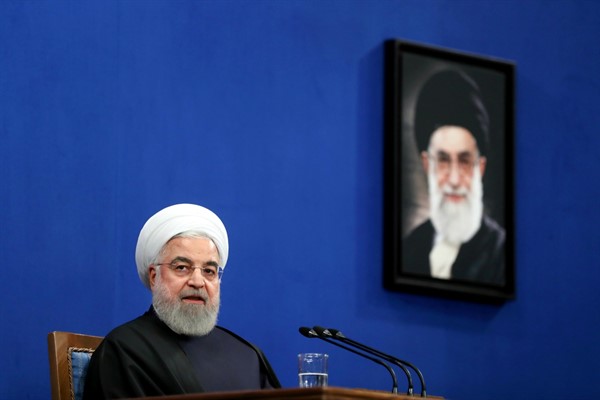The Trump administration’s strategy of applying “maximum pressure” on Iran has succeeded in inflicting unprecedented economic pain on the country, particularly since the U.S. withdrew from the Iran nuclear deal in May 2018 and subsequently reimposed punishing sanctions. Yet, despite the resulting political pressures that have mounted in Iran, the strategy has failed to meet its ostensible goal of bringing Tehran back to the negotiating table to agree to a far more comprehensive deal. Nor has it persuaded Iran to significantly alter its regional behavior, particularly its support for proxies that are hostile to the U.S. and Washington’s partners in the Middle East.
The main reason for this failure is not that the sanctions have lacked in intensity and rigor, but because the necessary domestic political conditions within Iran for reengaging with Washington no longer exist.
Officials in the Trump administration contended that the maximum pressure campaign would result in a far better nuclear deal—whereby Tehran would agree to dismantle its remaining uranium enrichment infrastructure and permanently subject its nuclear program to unparalleled restrictions—as well as in significant non-nuclear concessions with regard to Iran’s ballistic missile program and regional behavior. This argument, however, is based on the mistaken belief that Iran agreed to roll back its nuclear program under the terms of the Joint Comprehensive Plan of Action—or JCPOA, as the nuclear deal is officially known—only because of rigorous economic sanctions imposed collectively by the United Nations Security Council and unilaterally by the U.S. over the decade prior to the signing of the agreement. The Trump administration therefore sought to replicate the same conditions for yet another display of what Iranian leaders had called their “heroic flexibility” in signing the JCPOA, by applying even harsher economic and political pressures.

